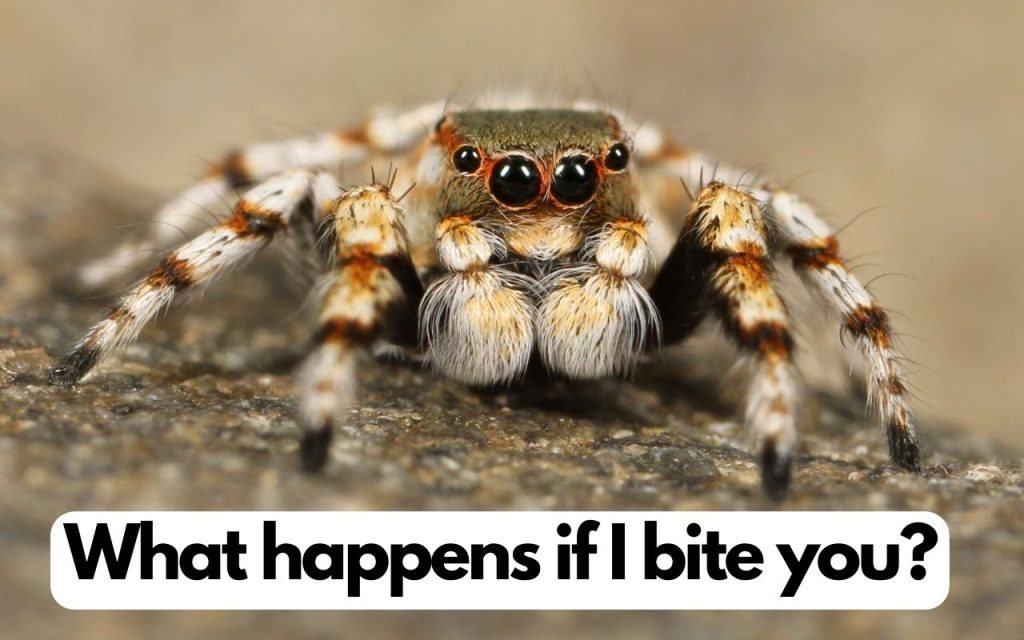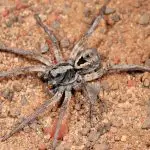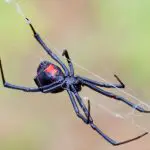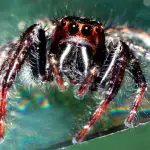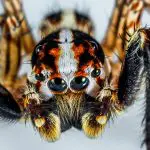Last updated on June 25th, 2023 at 07:29 am
Over the last few years, spiders in the Salticidae family have really started to take off in the pet trade. They’re actually catching up to tarantulas in terms of how many people keep them. Heck, if you’re an arachnid lover like me you’ve probably already got some. But what happens if a Jumping Spider bites you?
Well, all-in-all, not much. In this article, I’m going to tell you why their bites are nothing to be afraid of. Especially when you consider the fact that they really try to avoid biting!
Obviously anaphylactic shock (a severe allergic reaction) is possible with any bug bite, so always take them seriously. If you aren’t prone to allergic reactions, however, the likelihood is that a Jumping Spider bite just won’t do much to you…
Are Jumping Spider Bites Harmful?
According to WebMD, jumping spiders are harmless to humans. Their venom is designed primarily to immobilize their small insect prey and is not potent enough to cause severe harm to humans. Reactions to bites can vary from person to person, but most people experience only mild symptoms like localized redness, itching, and minor swelling.
Do Jumping Spider Bites Hurt?
Pain is subjective and can vary depending on an individual’s pain threshold. In most cases, a bite from a jumping spider is likened to a bee sting or a mosquito bite.
You might feel a minor prick or pinch at the moment of the bite, followed by some temporary discomfort.
I’ve actually met a couple of individuals who were bitten by these spiders, and they said that the pain was milder than that of a bee sting. They also said that the effects wore off more quickly, too.
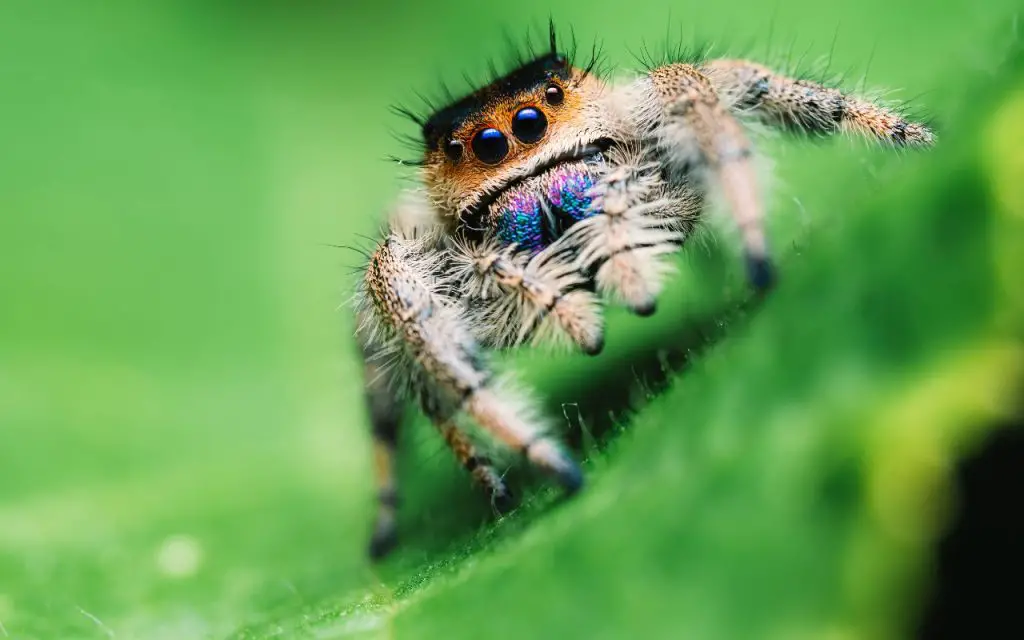
Jumping Spider Venom
Jumping spiders do possess venom, but it’s primarily designed for their insect prey. This venom is not medically significant for humans.
In rare cases, if the individual is allergic to the venom, they might experience symptoms such as fever, nausea, and muscle pain. Always consult a healthcare professional if you experience unusual or severe symptoms following a spider bite.
The important thing to remember about venom is that it has more than one function. It is used for:
- Defence
- Immobilising prey
- Pre-digesting prey
As an arachnid enthusiast, I’d argue that the most important function on the list is immobilising prey. So for strong, agile species like Jumping Spiders, it doesn’t need to be that strong. They can do a lot of the overpowering with their jaws and legs.
You’ll notice that highly venomous species like Black Widows are a lot less strong-looking physically. Obviously, it’s not a hard and fast rule, but often the weaker the spider, the stronger the venom – and vice versa.
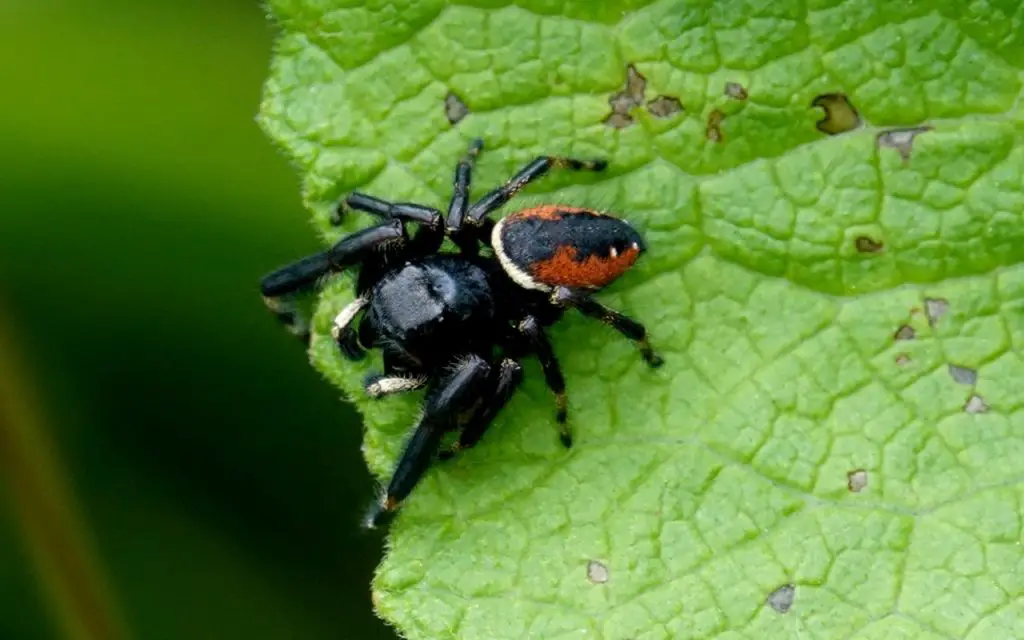
Are Jumping Spiders Friendly?
Jumping spiders are known for their curiosity and relatively docile nature. They’re often seen as friendly towards humans, and they don’t bite unless provoked or threatened. Remember, each spider is an individual, and temperaments can vary.
It’s important to note, however, that the vast majority of Jumpers are not communal. Whilst they may seem friendly to us, they can be aggressive towards each other, and should not be kept together.
Is It OK to Hold a Jumping Spider?
Yes, it’s generally safe to handle a jumping spider. Their first instinct when confronted is usually to flee, not to bite. If you’re gentle and calm, you can safely interact with these fascinating creatures without fear of being bitten.
That said, they are pretty small and delicate. If you handle one and you aren’t confident, you could easily squish it by accident. If you’re happy to do so, the best way to hold one is to gentle coax it onto your hand, rather than actually pick it up.
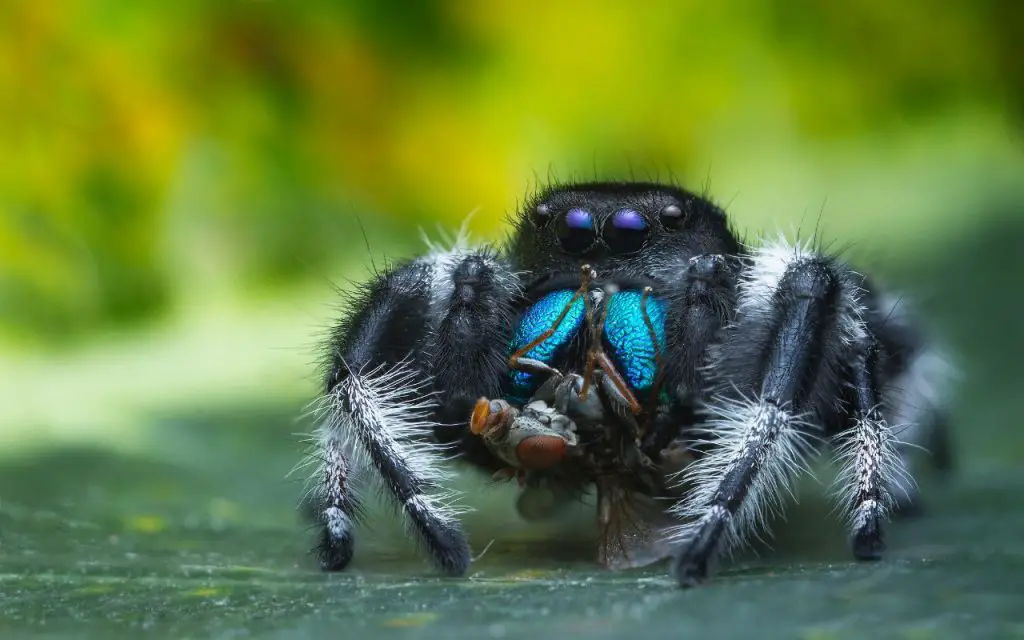
Are Black Jumping Spiders Poisonous?
Black jumping spiders, or bold jumping spiders (Phidippus audax) and relatives, are not poisonous to humans. They do carry venom for hunting their prey, but it is not potent enough to cause more than minor discomfort to humans.
Are Jumping Spiders Poisonous to Cats?
As for pets, jumping spiders pose little to no threat. Cats may experience mild discomfort if bitten, similar to a bee sting, but the venom is not potent enough to be harmful. However, as with humans, if your pet shows severe symptoms following a spider bite, consult a veterinarian.
Zebra Spider Bite
Zebra spiders (Salticus scenicus) are a type of jumping spider known for their distinctive black and white striping. Their bite is not generally a cause for concern, producing minor symptoms similar to other jumping spiders.
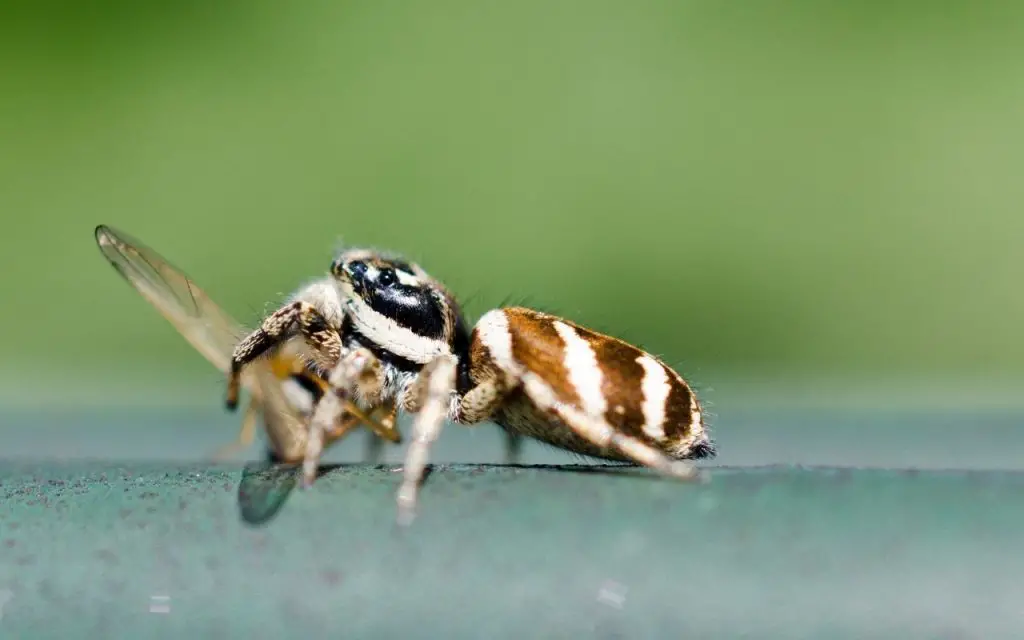
Are Jumping Spiders Good Pets?
Due to their docile nature and low-maintenance care, jumping spiders are considered good pets for those interested in arachnids. They’re fascinating to observe, and their interactive behaviors can make for an interesting pet experience.
The best pet Jumping Spiders (in my opinion) are the Tan Jumping Spider, the Bold Jumper, the Regal Jumper, the White Moustached Jumper and the Green Jumping Spider.
Jumping Spider Size
Jumping spiders are small, typically measuring between 1/8 to 3/4 inch (3-18mm) in length. This small size contributes to their inability to break human skin easily and, subsequently, the minimal effects of their venom on humans.
The largest jumping spider so far discovered is the Giant Jumper (Hyllus giganteus), which can reach an adult size of up to 25mm in length.
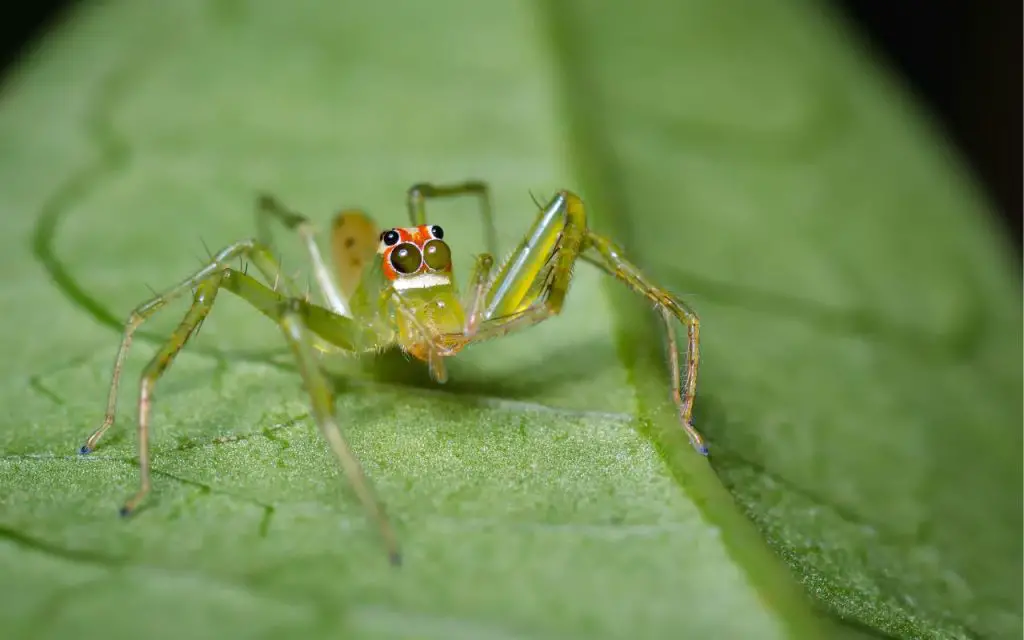
What happens if a jumping spider bites you? Conclusion…
While the idea of a spider bite might seem frightening, it’s important to remember that jumping spiders are largely harmless to humans and pets.
Their venom is not potent enough to cause severe harm, and they are more likely to run away than confront or bite a human. In the rare case of a bite, the symptoms are usually minor and short-lived.
In summary, the answer to the question, “What happens if a jumping spider bites you?” is: typically, nothing much beyond minor discomfort. But, as with any wildlife, respect their space, handle with care, and the chances of a bite are minimal.
*Note: Never underestimate the possibility of an allergic reaction from any bug or animal bite. If you experience hives, facial swelling or shortness of breath your first reaction should be to call the emergency services.
Here’s a brief summary of what we’ve learned today:
| Aspect | Answer |
|---|---|
| Harmful to humans? | Generally no |
| Painful? | Mildly, akin to a bee sting |
| Venom potency | Not medically significant for humans |
| Friendly? | Yes, typically docile |
| Safe to handle? | Yes, with care |
| Harmful to cats? | Generally no |
| Zebra spider bite | Not a cause for concern |
| Good as pets? | Yes, low-maintenance and interesting |
| Size | Small (1/8 to 3/4 inch) |
In my years of studying and caring for these amazing creatures, I’ve found that understanding and respect go a long way in ensuring a harmonious interaction. Until next time, keep exploring the fascinating world of arachnids!

